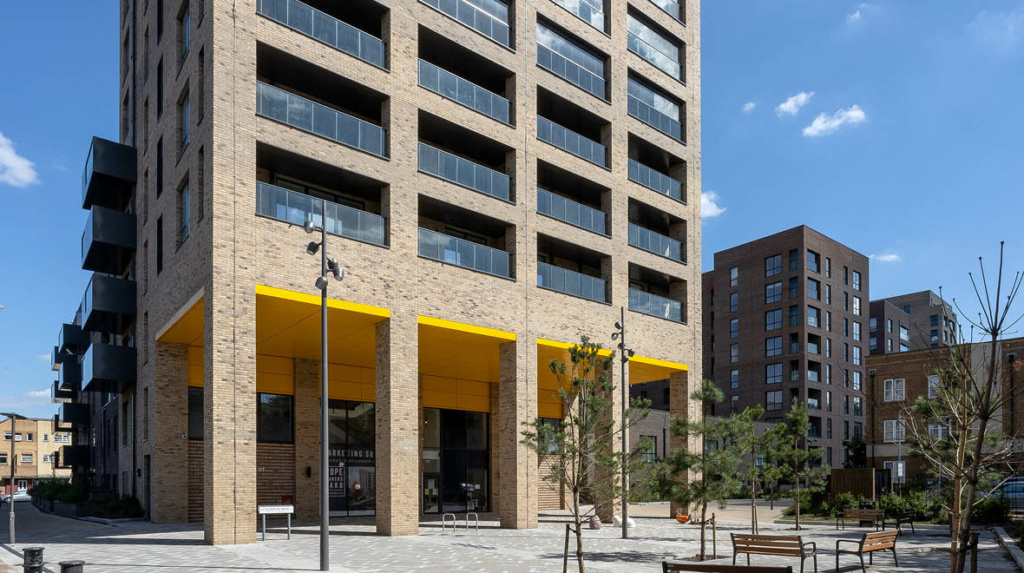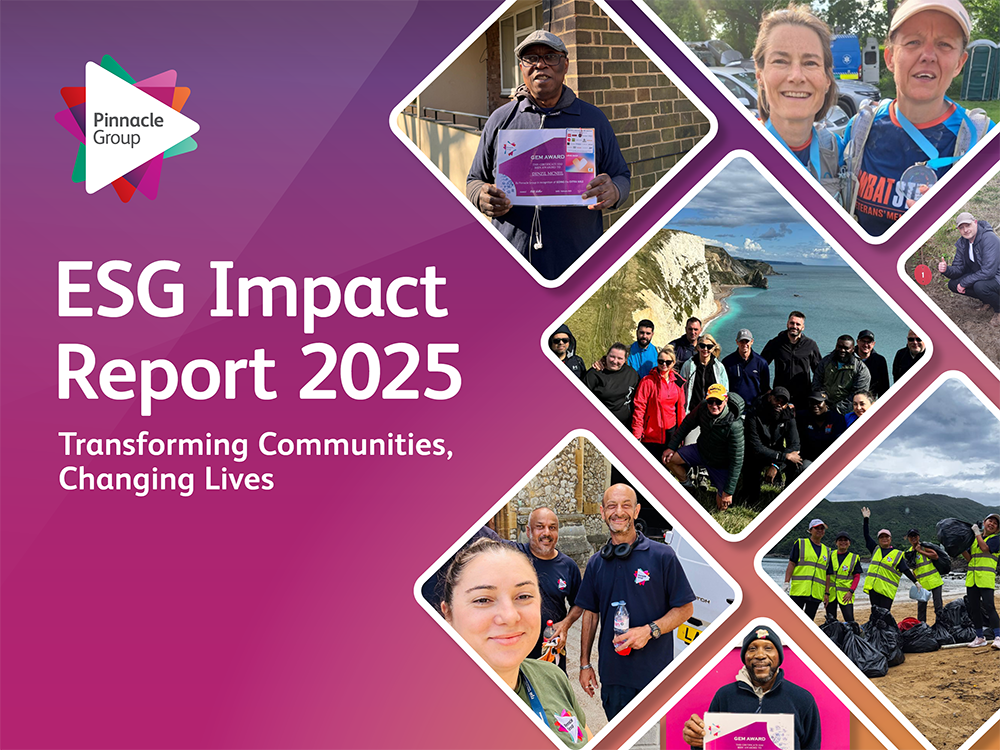Claire Kober on why the devil is in the commonhold details
The publication of the draft Commonhold and Leasehold Reform Bill last month has been framed as the moment England and Wales began to move beyond leasehold.
Its sweeping programme includes banning new leasehold flats once a viable commonhold framework is established; capping existing ground rents at £250, then cutting them to a peppercorn after 40 years; and abolishing forfeiture in favour of a fairer enforcement regime.
Ministers say it is one of the most significant overhauls of property law in decades, with big implications for homeowners, developers and lenders. Crucially, they say, it marks the start of the end for the ‘feudal’ leasehold system.
But as the industry prepares responses to the consultation on the bill, a key question remains: who will run commonhold buildings? Commonhold hands control to residents via commonhold associations, making them responsible for a building’s governance, finances and stewardship. The bill strengthens this by introducing a commonhold community statement (a statutory ‘rulebook’), mandatory reserve funds and ways to organise mixed-use schemes in ‘sections’ where only those affected by a service or change vote on it.
In theory, this is welcome empowerment. In practice, it is a profound operational shift. But there are useful lessons from the residents’ management company (RMC) model. RMCs work well when residents have clear governance structures and a shared understanding of their financial and management responsibilities, supported by a reliable professional team, underlining the importance of embedding similar safeguards in the commonhold framework.
"If commonhold is to succeed, then capability, not just policy, must come to the forefront."
With all its flaws, leasehold provided a clear structure, with freeholders legally responsible for the building, aided by a managing agent. Commonhold replaces that central point of accountability with volunteer homeowners’ committees.
Managing a residential block is complex work. Overseeing fire safety compliance, planning major works, setting budgets, commissioning contractors, navigating disputes and balancing residents’ and commercial occupiers’ competing interests isn’t easy. Many of leasehold’s problems, such as spiralling service charges and poor communication, reflect how challenging it is to run buildings well.

The bill promises greater transparency for residents and accountability for managing agents, but transparency does not create expertise, nor does it guarantee good decision-making by residents themselves. The sector also has yet to reckon with the sheer variety of buildings that will be expected to adopt commonhold. A small, cohesive block of six flats presents a very different governance challenge from a 300-unit, mixed-tenure block with retail, shared energy systems and complex compliance needs.
No easy transition
Even with reforms proposing to reduce the threshold for converting from leasehold to commonhold, in some cases to 50% of qualifying leaseholders, rather than requiring consensus, transition will not be straightforward. The draft bill acknowledges the phased and uncertain nature of implementation, with key timings, exemptions and transitional arrangements yet to be finalised.
This makes a fragmented landscape likely; some buildings could move swiftly to commonhold while others remain in leasehold for years, with many caught in between. A two-tier market could emerge, where forward-thinking schemes adopt the regime early and more complex buildings stall due to ownership patterns or lack of readiness.
Critics also warn that eroding freeholder responsibilities may undermine investment in building safety and long-term maintenance, especially where resident-led associations lack the resources or expertise to manage and prioritise them. Mandatory reserve funds are important, but they will not safeguard against underfunding or poor planning.
If commonhold is to succeed on the scale envisioned, then capability, not just policy, must come to the forefront. That means investing in training, professional support and governance frameworks; equipping residents to take on big responsibilities confidently; and ensuring managing agents can adapt to a more collaborative, resident-directed role. It means lenders, developers and local councils must understand the operational, not just the legal, implications.
The bill may set the framework, but the devil is in the detail. The real test will be what happens when the governance of thousands of buildings becomes the responsibility of the people who call them home.

Claire Kober
Managing Director (Homes), Pinnacle Group
This article was originally featured in Property Week, on 18th February 2026.
Behind the Job: Debra Petrucci
Recently, Debra Petrucci, Head of Operations for the specialist Facilities Management division at Pinnacle, Pinnacle Workplace, spoke with Facilitate Magazine to discuss her role and experiences in the FM industry.
What do you do?
I am head of operations for Pinnacle Workplace, the specialist FM division of Pinnacle Group.
What attracted you to FM, and how did you get into the industry?
My background is in the hospitality industry, and I came into FM through the B&I catering sector, then through soft services with Mitie to a wider FM role now with Pinnacle.

How long have you been in your current role?
I have worked here for two-and-a-half years.
Do you see yourself predominantly as a task or a people manager?
Predominantly a people manager – our 450-plus operatives are focused on service delivery, so it’s key that we give them the right leadership and support to execute those tasks.
Would you describe your role as predominantly operational or strategic?
My role blends both; I am field-based and oversee day-to-day operations. Working alongside our teams and clients often gives me the insights that shape our strategic plans.
How many people are there in your FM team, and to whom does the FM team ultimately report?
We are an operations team of 10, and we report to the managing director of the Workplace division.
My top perk at work is…
The variety that my role brings. We oversee a number of different service lines, so no two days are the same. It’s the diversity of contracts, clients and our team that I enjoy.
What has been your biggest career challenge to date?
Continuing operations during Covid-19 while having to reduce our team was the most difficult time. Fortunately, we re-employed most of them when it was over.
If you could change one thing about the industry, what would it be?
That more people could see that the FM sector provides a varied and interesting career choice, and do more to engage with young adults at the start of their working life.
Any interesting tales to tell?
I’ve experienced some fascinating moments in FM – from managing unique sites to handling unexpected challenges – every day brings something new and keeps the role exciting.
If I weren’t in facilities management, I’d probably be…
In the legal field, probably involved in employment or corporate law.
Which “FM/Workplace myth” would you most like to put an end to?
That FM is a male-dominated industry, my experience has been quite the opposite, and I have worked with very diverse teams.

What single piece of advice would you give to a young facilities/workplace manager starting out?
Don’t be afraid to ask to be involved in projects or contract mobilisations that may push you out of your comfort zone – you will learn so much, especially about how to react to mistakes, issues and problems.
What was the weirdest day you’ve had in the office?
I once managed a contract that had a restricted nuclear area; the first time visiting that area and hearing the radiation detector was very weird – like being on a film set.
Early bird or night owl?
Early bird. Our whole ops team are early risers, so we try to get a head start on the day before the phone starts ringing or the traffic gets too bad!
What FM job in the world would you love more than anything?
I would love to oversee a royal estate like Sandringham. Managing the historical buildings would be an amazing challenge. I would particularly enjoy the grounds maintenance and arranging the dinner parties and events.
And where would FM be an absolute nightmare?
The London Underground.
Your life outside FM mostly involves…
My husband, daughter and our friends and family. We are all foodies, so my spare time is filled with lots of cooking, socialising and travelling.
This article was originally featured in Facilitate Magazine, on 6th January 2026.
Pinnacle expands partnership with Pears-backed MTD Housing by nearly 500 homes
Pinnacle Group (Pinnacle) has strengthened its partnership with MTD Housing, a Pears-backed for-profit registered provider, by taking on the management of an additional 475 Shared Ownership homes.
This significant expansion brings Pinnacle’s total portfolio under management for MTD to over 800 homes nationwide.
The collaboration began in January this year when Pinnacle assumed management responsibility for a newly acquired portfolio of 327 homes.
Now, the partnership extends across locations from Newquay to Norwich and Hythe to Harrogate, reinforcing Pinnacle’s national reach.

Under the agreement, Pinnacle will deliver a comprehensive range of services, including leaseholder onboarding and management, building compliance, lease management, staircasing, resales and void property management.
With a proven track record of managing over 74,000 homes across diverse tenures – affordable housing, PRS, military homes, student accommodation and later living – Pinnacle is well positioned to deliver exceptional service to both clients and residents.
This growth reflects Pinnacle’s broader success in securing key contracts over the last financial year. The company now manages over 5,000 homes on behalf of 13 for-profit registered providers, acting as a vital link between institutional capital and a housing market seeking investment.
“We’re delighted to be entrusted with these new homes and to continue building on our successful partnership with MTD. This growth demonstrates our ability to deliver consistent, customer-focused services at scale.”

Claire Kober
Managing Director, Homes at Pinnacle Group
ESG Impact Report 2025

Our latest report detailing a series of key ESG pledge successes has today been published, highlighting our progress across the four key pillars of our ESG Framework.
Today, we are delighted to publish our latest ESG impact report highlighting the exceptional service and positive difference we make to every community we serve.
This report not only celebrates our achievements but acts as a marker on our journey to net zero. This represents a substantial challenge, but is one we welcome, and are making significant strides towards.

Read our ESG Impact Report 2025
"While this year presented complex challenges in reducing emissions, we recognise that progress is not always linear. Despite these hurdles, we are proud to celebrate several milestones, including a 100% increase in electric vehicles within our fleet, 48% green energy usage across our offices and depots, and 80% of cleaning chemicals now classified as sustainable products. These achievements reflect our ongoing efforts to reduce our environmental footprint and protect our planet."

Paul de Kock
Head of Projects and Governance
Pinnacle continues to be a socially conscious and value-led business, this is demonstrated through the exceptional achievements of our people in protecting our planet, the social investments in our team and culture, and the communities we serve.
Pinnacle Group awarded communal cleaning contract for Hyde Group
We are pleased to announce that this week Pinnacle has commenced communal cleaning and waste collection services for Hyde Group’s estates, following a recent re-tender process.
Our teams will maintain the upkeep, safety and cleanliness of communal areas, ensuring they are visually appealing and enhancing the environment for Hyde's residents. Our service will also include the removal of bulk waste items to keep all areas safe and clear.
This contract follows the recent announcement that Pinnacle is now providing grounds maintenance services to Hyde homes. In preparation for the launch, Pinnacle colleagues have worked closely with Hyde’s teams to gain vital local insight and knowledge.

Mark Batchelor, Hyde’s Director of Property Services, said: “We’re committed to working with partners who can offer reliable and high-quality services to keep our communities looking their best. We know that working with Pinnacle will provide the best communal cleaning services for our estates."
“We’re delighted to have won this contract and can’t wait to get to know Hyde’s estates and customers. We know that Hyde’s colleagues and their local knowledge will be invaluable in helping us hit the ground running.”

Neil Fergus
Managing Director of Facilities Management
Pinnacle will work alongside Hyde’s Estate Services team and Neighbourhood Officers to organise drop-in sessions in the new year, giving residents the chance to meet our teams, ask questions and share feedback.
Pinnacle will provide cleaning services to all Hyde neighbourhoods, with the exception of Tower Hamlets Community Housing (THCH) homes, which employ their own cleaners. The contract does not cover homes managed by managing agents or PFI housing.
Hyde Group strategically acquired Pinnacle in October 2024, and while we operate as a standalone subsidiary, this connection allows for more joined-up services and reinvestment into social housing. Pinnacle competed in the tender process on equal footing, with the contract awarded based on service quality and value for money.
Pinnacle Group expands FPRP portfolio following partnership with Zen Housing
Pinnacle Group has announced a new partnership with Zen Housing, a for-profit registered provider (FPRP), further strengthening its position as the leading housing management provider for institutional investors and emerging affordable housing platforms.
Through this partnership, Pinnacle is now managing 135 homes on behalf of Zen, following a series of handovers over the summer at Oadby in Leicestershire, Desborough in North Northamptonshire and Chertsey in Surrey.
The most recent and largest handover took place at Wembley Way, London, where 104 new Shared Ownership and Affordable Rent homes were delivered in partnership with Quintain and SO Resi Partnerships.

“This partnership reflects the growing demand for professional, resident-focused housing management services in the for-profit registered provider space. We are proud to be working alongside Zen and to be the trusted partner of choice for organisations seeking to deliver high-quality, affordable homes at scale.”

Claire Kober
Managing Director, Homes at Pinnacle Group
With the addition of Zen Housing, Pinnacle now manages homes on behalf of 11 for-profit registered providers, including partnerships with MTD Housing (backed by Pears), NewArch Homes (backed by Octopus Investments).
Sergey Pichugin, Operations Director Asset Management at Zen Housing, said: “Our partnership with Pinnacle reflects a shared commitment to providing well-managed, affordable homes that residents can be proud of. Their strong operational capability and focus on community outcomes make them a valuable partner for Zen as we expand across the UK.”
Pinnacle’s comprehensive housing management offer includes tenancy and estate management, repairs coordination, compliance and resident engagement. With over 74,000 homes under management across all tenures, Pinnacle combines sector expertise with a commitment to delivering exceptional service and community impact.
As the market continues to evolve, Pinnacle remains the go-to partner for institutional investors seeking scalable, high-quality housing management solutions.
Pinnacle Group begins new grounds maintenance partnership with Hyde
We’re proud to announce that from today, 1st October 2025, Pinnacle Group begins delivering grounds maintenance services across Hyde Group’s estates.

This new partnership marks a significant step forward in enhancing the safety, cleanliness and overall appearance of communal estate areas for Hyde residents.
Our teams will be out and about wearing dual-branded Pinnacle and Hyde uniforms, making them easy to spot as they begin work in neighbourhoods.
In preparation for the launch, Pinnacle colleagues have been working closely with Hyde’s teams to gain vital local insight and knowledge.
“We’re delighted to have won this contract and can’t wait to get to know Hyde’s estates and customers. We know that Hyde’s colleagues and their local knowledge will be invaluable in helping us hit the ground running.”

Neil Fergus
Managing Director of Facilities Management
The new contract brings a more unified approach to grounds maintenance, with more frequent inspections and greater collaboration across Hyde’s estates.
In early 2026, Pinnacle will host drop-in sessions alongside Hyde’s Neighbourhood Officers, giving residents the chance to meet our teams, ask questions and share feedback.
This contract covers all Hyde neighbourhoods except those managed by external managing agents and Brent PFI.
Hyde Group strategically acquired Pinnacle in October 2024, and while we operate as a standalone subsidiary, this connection allows for more joined-up services and reinvestment into social housing. Pinnacle competed in the tender process on equal footing, with the contract awarded based on service quality and value for money.
Pinnacle Group appointed to manage BluePine Living’s affordable housing portfolio
Pinnacle Group has announced that it has been appointed as the housing management partner for BluePine Living, a new affordable housing platform backed by institutional capital and committed to delivering high-quality homes across England.

BluePine Living is investing in homes for social rent, affordable rent and shared ownership, with a focus on sustainability, customer service and long-term community impact.
Pinnacle will provide full-service housing management across the portfolio, ensuring residents benefit from responsive services, well-maintained homes and a seamless customer experience.
Dominik Ciba, Operations Director at BluePine Living, said: “We are thrilled to be partnering with Pinnacle as our housing management provider. Their proven track record and deep expertise in managing affordable housing customers makes them an ideal partner for our growth ambitions. With strong institutional capital support, this collaboration allows us to accelerate delivery of affordable homes right across the country and give our customers a very high-quality service.”

“We are delighted to be working with BluePine Living on this ambitious programme. We believe that professionally managed homes are the foundation of thriving communities. This partnership reflects our shared commitment to delivering high-quality, sustainable housing and ensuring that residents receive the best possible service.”

Claire Kober
Managing Director, Homes at Pinnacle Group
Pinnacle currently manages homes or provides services to 11 For-Profit Registered Providers (FPRPs) and is set to contract with several more, representing nearly a quarter of all FPRPs registered with the Regulator of Social Housing.
As the market leader, Pinnacle offers institutional-grade services tailored to institutional investors, combining deep sector knowledge, regulatory compliance and high performance with a commitment to delivering the best possible outcomes for residents.
The partnership will initially support homes in Worcestershire, Suffolk and Warwickshire with further developments planned across England. Pinnacle’s role will include tenancy management, repairs coordination and community engagement.
Claire Kober on how management shapes affordable housing
Affordable housing has long been a priority on political agendas, but too often the conversation stops once the cranes come down and the ribbon is cut.
With the government pledging to build half a million affordable homes in its first term, backed by £39bn in public funding, the emphasis has understandably been on speed, scale and headlines. But in the rush to “build, build, build”, we risk forgetting that building homes is just the first step towards truly making affordable housing a reality in this country. It is what happens next, including how those homes are managed, lived in and sustained, that determines whether they truly serve the communities they are meant to support.
This is where housing management plays a key role. It may not attract many headlines when done well, but its impact is significant. Housing management is what turns bricks and mortar into safe, secure homes. It ensures that affordable housing lives up to its social promise – not just on completion but for decades to come.
If we are serious about addressing the housing crisis, we must be equally serious about how homes are managed once the keys are handed over.
"The sector needs more than just builders and landlords; it needs experienced housing operators."
Good housing management covers everything from lettings and repairs to resident engagement, neighbourhood safety and long-term maintenance. Done right, it creates stable communities, supports resident wellbeing and generates trust in the social and affordable housing system. Done poorly – or neglected entirely – it leads to disrepair and, in some cases, even disaster.
It is not just about delivering social outcomes in isolation. For investors, effective management is what locks in long-term value.
With the government increasingly relying on private capital to help meet its ambitious housing targets, the question investors are asking is not just ‘how many homes?’ but ‘what kind of return?’ That return increasingly includes social and economic impact, not just financial gain. In fact, it is the social and economic outcomes – such as high resident satisfaction, well-managed assets, lower arrears, reduced turnover and fewer void periods – that often lay the foundation for sustained financial performance.
The sector needs more than just builders and landlords; it needs experienced housing operators that understand the full lifecycle of housing delivery – partners that can navigate complex regulation, maintain properties to high standards and, most importantly, put residents at the heart of decision-making. These are the players that can bridge the gap between capital and community, delivering value for money for the taxpayer, satisfaction for the resident and reliable returns for the investor.

Reframing the conversation
This shift is already under way. We are seeing for-profit registered providers increasingly team up with professional housing managers that bring scale, rigour and a focus on residents.
But the government has a role to play, too. As it pushes forward with its housing strategy, it must ensure that management quality is one of the metrics for success. That means encouraging partnerships between investors, housing providers and expert operators, as well as setting standards not just for construction but for care, recognising that a well-managed home is a public good, just as much as a newly built one.
This is where the conversation about affordable housing needs to be reframed. Instead of measuring progress purely in the number of new affordable homes delivered, we need to start measuring it in outcomes: improved lives, thriving communities and sustained value. A home is not a product but a daily experience, and that experience is shaped not by the builder who laid the bricks but by the team that shows up day after day to fix the boiler, respond to concerns and create a sense of place.
When the headlines fade and the construction dust settles, what remain are the people who live there and the systems that support them. If we want to ensure that affordable housing is not just more housing but better housing, then housing management must become a bigger part of the equation.

Claire Kober
Managing Director (Homes), Pinnacle Group
This article was originally featured in Property Week, on 3rd September 2025.
Perry Lloyd: The government must not lose focus on how homes will be professionally managed, not just built
With the Government aiming to deliver half a million affordable homes during this Parliament, supported by £39 billion in public grant, the ambition is both bold and necessary. The scale of the challenge reflects the urgency of the housing crisis facing the UK, where demand for secure, affordable accommodation continues to outstrip supply. But ambition alone won’t deliver results. The UK’s affordable housing sector needs more than just bricks and mortar; it needs a robust, sustainable delivery model that ensures long-term value for residents, taxpayers, and purposeful investors with access to appropriate institutional capital.
Achieving this target will require an estimated £11 billion in private capital. For investors, this presents a compelling opportunity to deploy long-term funds into a sector of growing social and political importance. Affordable housing is increasingly recognised not just as a moral imperative, but as a resilient asset class with the potential to deliver stable returns and measurable social impact. However, the journey from capital investment to community impact is complex and requires more than financial commitment, it demands operational excellence and strategic collaboration.

The challenge isn’t just building homes; it’s about building investable, suitably configured stock in accordance with tailored specifications that design out long term cost in support of efficient well-managed and well-maintained homes with built-in resilience capable of delivering enduring value. Poor management not only diminishes the social impact of affordable housing but also undermines investor confidence and places additional pressure on local services. That’s why the conversation must evolve from a construction-based numbers game to one of stewardship, service quality, and sustainable outcomes. Homes must be more than units, they must be part of thriving, inclusive communities.
"There is increasing recognition that professional, institutional-grade housing management is critical to the success of affordable housing."
There is increasing recognition that professional, institutional-grade housing management is critical to the success of affordable housing. From lettings and tenancy management to resident engagement, maintenance, and neighbourhood services, as well as quality performance reporting, efficient service delivery is what transforms housing units into places people are proud to call home. It’s also what ensures value for money for the public purse and supports the necessary proportionate return on investment for private funders. Without this, the sector risks falling short of its potential, socially, economically and financially.
This is where experienced housing partners play a vital role. The sector needs a trusted bridge between private capital and housing delivery, partners who can provide the operational scale, compliance expertise, and service excellence required to deliver high resident satisfaction and resilient, well-managed assets. These capabilities are essential to translating investment into long-term value for all stakeholders. The best management partner ensures that well-built homes are expertly maintained and operated in ways that improve quality of life for residents, promotes community wellbeing and, at the same time, minimises rent-loss for the investor. In this way the interests of residents and investors are closely aligned.

The trend is already taking shape. For-profit registered providers (FPRPs) are increasingly partnering with expert housing managers to meet these demands. Pinnacle currently manages homes on behalf of 11 FPRPs and is set to contract with six more, representing nearly a quarter of all FPRPs registered with the Regulator of Social Housing. As the market leader, we offer institutional-grade services tailored to institutional investors, combining deep sector knowledge, regulatory compliance and high performance with a commitment to best resident outcomes.
As the Government drives forward its housing targets, it must not lose focus on how these homes will be professionally managed, not just built. Encouraging collaboration between investors, housing providers, and experienced management partners will be key to delivering not only the quantity of homes we need, but the quality of life that residents deserve, and the financial performance and sustainability that investors require. This collaborative, long-term approach is essential to ensuring that affordable housing delivers lasting, meaningful impact. The future of affordable housing lies not just in construction, but in the creation of communities that are well-served, well-managed, and built to last.

Perry Lloyd
Group Chief Executive, Pinnacle Group
This article was originally featured in Inside Housing Management, on 5th August 2025.
Pinnacle Group’s Paul Carney awarded OBE in King’s Birthday Honours list
Paul Carney OBE, Chief of Staff, Pinnacle Service Families (PSF), has been appointed as an Officer of the Order of the British Empire (OBE) in the King’s Birthday Honours List 2025.
This honour recognises Paul’s outstanding service to the Army. He now continues his dedication to supporting military families in PSF.
Paul joined Pinnacle in April 2025 following a distinguished 28-year military career, culminating in his role as the Army Sergeant Major – the most senior non-commissioned soldier in the British Army.
Since joining Pinnacle, Paul has brought his deep understanding of military life and strategic leadership to the forefront of PSF’s mission to manage and enhance services for over 49,000 Service Family Accommodation homes across the UK. Paul has always been a “soldiers’ soldier” and this is at the heart of what drives his contribution to PSF.

“I am deeply honoured to receive this recognition. Serving the Army was a privilege, and continuing to support service families through my work at Pinnacle is equally meaningful. This award is a reflection of the incredible people I’ve worked alongside throughout my career, both in uniform and now as a veteran.”

Paul Carney
Chief of Staff, Pinnacle Service Families
“Paul's OBE is a testament to his exceptional leadership, integrity and commitment to those who serve, and their families. We are proud to have him as part of our team."

Perry Lloyd
Group Chief Executive
Paul’s award follows a series of strategic appointments to the Pinnacle Service Families Senior Leadership Team, reinforcing Pinnacle’s commitment to delivering high-quality services to the Armed Forces community.
Claire Kober on how new homes need public support
If the claims in Lord Ashcroft’s latest book are to be believed, Angela Rayner – feeling she was set up for a fall – threatened to quit over the government’s ambitious housing target. Tony Blair was allegedly called in, and a grace-and-favour pad at Admiralty House was offered to placate the agitated housing secretary.
Whatever the truth, it is clear that building 1.5 million homes over the course of this parliament is a huge undertaking and it is understandable that members of the public – and politicians – are sceptical.
History suggests this scepticism is well placed; completions have not breached the 200,000 mark since 1998 and the last time more than 300,000 homes were completed in a year was back in 1969.
While they had 12 housing ministers over the course of their time in government, the Conservatives failed to hit their target of one million new homes during their last term; and their peak of 234,400 net additional dwellings in 2022-23 fell far short of their goal of 300,000 new homes a year by the mid-2020s.
These statistics demonstrate the challenge Labour faces in trying to hit its own higher target, with housing minister Matthew Pennycook admitting last November that the task would be “more difficult than we expected in opposition”. While he called it an “incredibly stretching target”, he also said he was “convinced” it was deliverable and “essential”.
Given the history, is it right to have such an ambitious target? And if so, will aiming for it and potentially falling short further erode public trust in government?
"Effective communication about efforts and expected timelines is essential to maintain public trust."
Targets have been extensively used by central government policymakers across various areas, from the NHS to net zero. They signal political priorities and communicate intent to the public and those responsible for delivery. Housing targets focus the efforts of government and industry, and drive delivery. It is a truism that what gets measured gets done.
However, targets must be used thoughtfully, strategically and sparingly. Simply parroting a target in isolation won’t convince those affected by the housing crisis – or those in areas where development is proposed – that the right kind of progress will be made or a solution found.
With more than 100,000 households in temporary accommodation and house prices around eight times the average earnings, it is not just numbers that matter to people on the ground; affordability is also key.

Public perception
According to polling by More In Common last year, in contrast to a political and media debate that sees housebuilding through either a Nimby or a Yimby lens, half the public say their view on development in their area depends on the merits of the proposals in question.
The research shows that the public’s concerns centre on a perception that development would simply lead to more expensive houses being built and little to no new amenities such as schools and GP surgeries being created alongside them. If new housing is not more affordable than what is already on offer, and an influx of new homeowners puts strain on already stretched amenities, then communities will not support it.
Brits, generally speaking, are not against housebuilding. But their support is contingent on their concerns being addressed and progress consistently demonstrated.
The government must provide clear and honest explanations as it works towards its ambitious target. And Labour’s policy changes will take time to manifest. Reforming planning regulations, training skilled tradespeople and increasing investment in affordable housing require time to translate into tangible increases in housing numbers. Effective communication about these efforts and their expected timelines is essential to maintain public trust and build support.
Ministers reportedly anticipate no more than 200,000 net additional dwellings from the last financial year, creating a growing shortfall that will need to be addressed in the later years of this parliament. This could necessitate building as many as 400,000 new homes annually by the late 2020s to meet targets.
Gaining and maintaining support from all stakeholders will be crucial in achieving the housing target, despite the challenging circumstances. Scrapping it is not an option.

Claire Kober
Managing Director (Homes), Pinnacle Group
This article was originally featured in Property Week, on 21st May 2025.